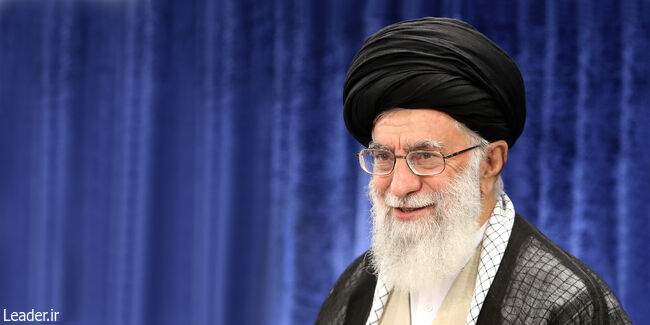Following the proposal of the Chief of Justice to Ayatollah Khamenei to agree to grant amnesty and reduce the punishment of a significant number of the defendants and convicts of recent events, as well as those convicted by the General and Revolutionary Courts and the Judicial Organization of the Armed Forces, the Leader of the Islamic Revolution agreed to this proposal.
In his letter to the Supreme Leader, Hujjat-al-Islam Eje'i stated: during the recent events, a number of people, especially young people, committed wrong behaviours and crimes as a result of incitement and propaganda by the enemy. This caused trouble not only for themselves but also hardship for their families and relatives. Now, a significant number of them are asking for forgiveness after the plans of foreign enemies and anti-revolutionary and anti-people currents have been revealed.
The Chief of Justice has written in his letter: The general terms and conditions of amnesty and reduction of punishment for the accused and convicted have been prepared in two parts after carrying out expert work and consulting with the competent authorities.
In his letter, the Chief of Justice wrote that the general terms and conditions of amnesty and reduction of punishment for the accused and convicted have been prepared in two parts after conducting expert work and consulting with the relevant authorities.
In the first part of this letter, while announcing the terms of amnesty and reduction of punishment for the accused and convicted of the recent incidents, it is emphasized: the case of the accused and convicted will be closed at any stage if they meet the listed conditions.
In the announcement of the conditions of amnesty and reduction of punishment for the defendants and convicts of the recent incidents, it is stated: not committing espionage for the benefit of foreigners, not having direct contact with agents of foreign intelligence services, not committing intentional murder and injury, not committing destruction and arson of government, military and public facilities and not having a private plaintiff or claimant.
In the second part of the request of the Chief of Justice for amnesty and reduction of punishment for those convicted by public and revolutionary courts and the judicial organization of the armed forces, conditions have also been announced, including the absence of a private plaintiff or claimant, the remainder of the sentence of those sentenced to imprisonment for up to one year if they have endured at least one month until the 22nd of Bahman, Three-quarters of the sentence of those sentenced to imprisonment for more than one year to five years, if they have endured one-fifth of it by the 22nd Bahman, half of the sentences of those sentenced to imprisonment for more than ten years to twenty years, provided that they have endured at least two years of imprisonment until the 22nd of Bahman, and the rest of the sentences of imprisonment for all those convicted of non-intentional crimes.
Announcing special conditions for female convicts who are in charge of guardianship or custody of their children according to the law, and for convicts who have incurable or chronic diseases, male convicts over seventy years old and female convicts over sixty years old, as well as for convicts who are in prison due to their inability to pay fines are among the other contents of the proposal letter for amnesty and reduced punishment.
The Chief of Justice's letter excludes several groups from this amnesty, such as those involved in the purchase, sale and trafficking of firearms, those guilty of theft and banditry, offences related to narcotics and psychotropic substances committed with weaponry, opening centres for corruption and prostitution, smuggling alcoholic beverages, organized and large-scale professional smuggling of goods and currency, overseeing or aiding in major economic disruptions on a large scale, and crimes against internal or external security.

